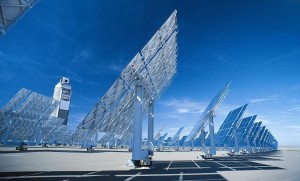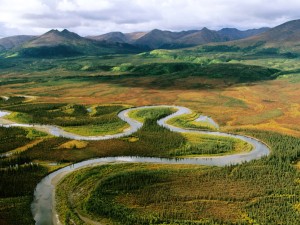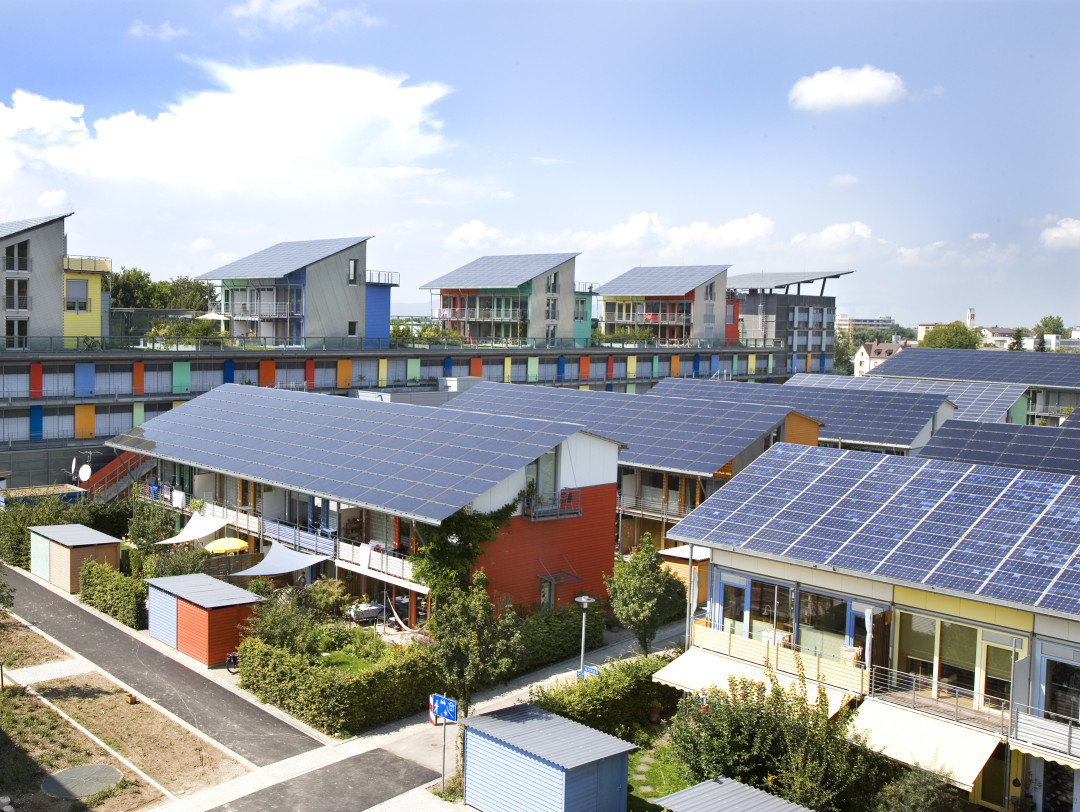[That] the Earth is a human planet becomes truer every day. Humans are made from the Earth, and the Earth is remade by human hands. Many earth scientists express this by stating that the Earth has entered a new geological epoch: the Anthropocene, the Age of Humans. We write with the conviction that knowledge and technology, applied with wisdom, might allow for a good, or even great, Anthropocene.
~An Ecomodernist Manifesto
There is a debate going on among geologists about when the Anthropocene began. As recently reported in Aeon Magazine, some are recommending a start date in the 1950’s due to the proliferation of thermonuclear test explosions which left a radionuclide signature across the planet. But also because the early 1950’s “coincides with the beginning of the Great Acceleration in the second half of the 20th century, a period of unprecedented economic and population growth with matching surges in every aspect of planetary dominance, from the damming of rivers to fertiliser production, to ozone depletion” and of course, greenhouse gas concentrations in the atmosphere.
In the integral world, we often emphasize the miracles of development and the evolution of consciousness, culture and technology that arise through it. But development also exacts great costs in the degradation of the natural world, atmosphere and oceans. We also suffer a psychological toll of being alienated from the natural cycles of the earth, and oftentimes from each other. And of course some say that development is much worse than that—it is our doom.
 But it may be more accurate to say that something new is being born. As societies develop populations become more urban and have fewer children, which results in a smaller ecological footprint. We see that in first world countries carbon dioxide emissions are beginning to drop, the air and water is ever cleaner, trees and biomass are increasing, and the number of wild animals is stable — even as human populations increase (through longer life spans and immigration) and economies grow. It’s not all bad news.
But it may be more accurate to say that something new is being born. As societies develop populations become more urban and have fewer children, which results in a smaller ecological footprint. We see that in first world countries carbon dioxide emissions are beginning to drop, the air and water is ever cleaner, trees and biomass are increasing, and the number of wild animals is stable — even as human populations increase (through longer life spans and immigration) and economies grow. It’s not all bad news.
We have to make the wellbeing of everyone a top priority. We have to give everyone the opportunity to enjoy the fruits of modernity, or else we don’t get to enjoy them ourselves. It’s the Bodhisattva vow: nobody gets enlightened until everybody gets enlightened. This commitment naturally comes online as we develop. God is good at keeping us focused not only our where our individual growth lies, but the growth of humanity as a whole. ~Jeff Salzman
Historically, we see ecological awareness come online as an effort to protect one’s own tribe, clan or country (thus the U.S. Clean Water and Clean Air Acts of the1970’s, as well and the clean-up efforts in China and other 2nd world countries today). This impulse matures as we become world-centric, and begin to see the all the earth and all the life it supports is sacred and worth preserving.
“But didn’t early cultures also have a sacred relationship with the earth?” you might ask. Well, they may have engaged in nature worship, but that was about nature protecting them, not them protecting nature.
As An Ecomodernist Manifesto points out, “Early human populations with much less advanced technologies had a far larger individual land footprint than societies have today. Consider that a population of no more than one or two million North Americans hunted most of the continent’s large mammals into extinction by the late Pleistocene while burning and clearing forests across the continent in the process. Extensive human transformations of the environment continued through the Holocene period. As much as three quarters of all deforestation globally occurred before the industrial revolution.”
This challenges a basic tenet of postmodern, green-altitude environmentalism, the “pre-trans fallacy” that says the way forward for humanity is to go back to the way it was in premodern and even pre-agricultural times. This is of course is completely unachievable short of the collapse of civilization and a major human die-off — which is why there are some people in the environmental movement that actually wish for a “great collapse.”
As we push up against the limits of a finite planet, there are two competing views: 1) the modernist view that development is constructive and 2) the postmodernist view that development is destructive. What we see as integralists is that both sides of this pole reside in the first-tier altitude stack. As such, they think that their view is the only correct one and that people who hold the other view are co-opted, deluded, naive or stupid. Welcome to the politics of environmentalism! But from an integral perspective, again, it’s not all bad news. We see that the powerful conflict in these polarities is fruitful. Indeed, it is the engine of the dialectic of progress. We fight with our ideas but we have sex with them as well, creating more sophisticated, integrated perspectives.
Excerpt | Tidying up: Enlightenment in the third person
An Ecomodernist Manifesto presents just such an integrated perspective. As Slate Magazine says, “After decades of hearing environmentalists rally against things (no Keystone pipeline!), the change in tone coming from ecomodernists is palpable and welcome. It’s inclusive, it’s exciting, and it gives environmentalists something to fight for for a change. Plus, the ecomodernist focus on people and planet gives the broad middle of the American public a way to embrace ethical economic growth, without having to chain themselves to a pipeline.”
 So now, people who care about the planet can debate what we are going to say yes to, and how we are going to create a great Anthropocene—because there’s no going back. Humans are a geological force, as powerful as any other on the planet. We are Nature Herself, and no, Gaia is not mad at us. The Anthropocene posits a worldview in which humans are not just relevant but actually responsible for the fate of the planet.
So now, people who care about the planet can debate what we are going to say yes to, and how we are going to create a great Anthropocene—because there’s no going back. Humans are a geological force, as powerful as any other on the planet. We are Nature Herself, and no, Gaia is not mad at us. The Anthropocene posits a worldview in which humans are not just relevant but actually responsible for the fate of the planet.
“What is important is that we see that we don’t have to fight something or correct something as much as we have to support something that is happening under its own power,” says Jeff, “This is the continued development of first-person consciousness, second-person culture and third-person technology.”
Listen to the podcast for more details of Jeff’s integral analysis of An Ecomodernist Manifesto, and join the conversation.
Podcast: Download
Subscribe: Google Podcasts | RSS






